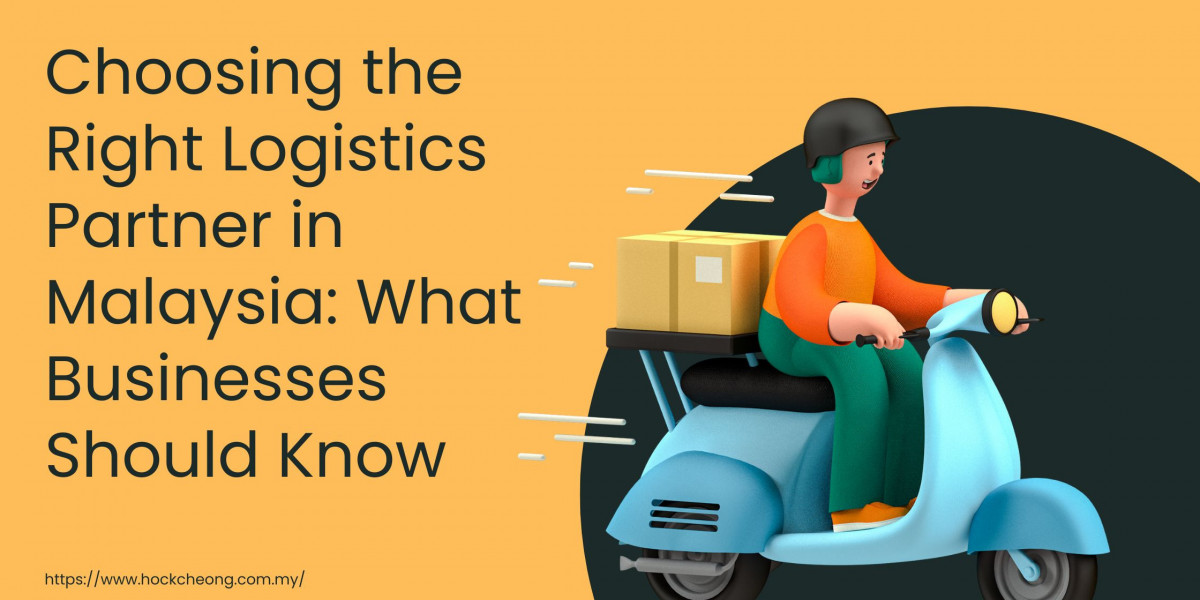This article explores the key factors businesses should consider when selecting a logistics partner in Malaysia to ensure long-term growth and operational efficiency.
1. Understand Your Business Logistics Needs
Before choosing a logistics partner, it’s vital to assess your company’s logistics requirements. Are you handling domestic deliveries, regional exports, or international imports? Do you need warehousing, inventory management, or cold-chain logistics?
For example:
- E-commerce companies may need last-mile delivery and reverse logistics support.
- Manufacturers might require bulk freight and warehouse storage.
- Food or pharmaceutical businesses must prioritize temperature-controlled transportation.
Understanding your needs helps narrow down logistics providers that offer specialized services aligned with your business goals.
2. Evaluate Industry Experience and Expertise
Experience matters when it comes to logistics. A provider with years of experience in Malaysia’s logistics ecosystem understands the local infrastructure, regulations, customs processes, and distribution challenges.
A logistics company that has handled operations across key industrial zones such as Port Klang, Penang Port, or Johor Port will have stronger networks and smoother coordination with local authorities. Additionally, providers familiar with different industries — such as FMCG, automotive, electronics, and healthcare — bring tailored strategies to handle unique logistical needs efficiently.
Look for partners who can demonstrate proven success stories, client testimonials, and certifications like ISO 9001 or Halal logistics compliance, which reflect operational reliability.
3. Check Service Offerings and Flexibility
A reliable logistics partner should provide end-to-end supply chain solutions, including:
- Transportation and freight forwarding
- Customs clearance and documentation
- Warehousing and inventory management
- Distribution and last-mile delivery
- Value-added services (like packaging, labeling, or returns handling)
Beyond these basics, flexibility is equally important. As your business grows, your logistics needs may evolve — such as higher shipment volumes or new delivery routes. Choose a partner capable of scaling operations and adapting to seasonal demand changes without compromising service quality.
4. Technology and Real-Time Tracking
Modern logistics runs on technology. Businesses today require visibility and control over their shipments at every stage. A good logistics partner in Malaysia should offer digital tracking systems, data analytics, and automated updates through online dashboards or mobile apps.
Key technologies to look for include:
- GPS tracking for real-time shipment visibility
- Warehouse Management Systems (WMS) for inventory control
- Transportation Management Systems (TMS) for route optimization
- AI-driven analytics for demand forecasting
These tools not only improve transparency but also enhance efficiency, reduce delays, and help you make data-driven decisions.
5. Cost Transparency and Value for Money
While cost is a crucial factor, the cheapest option is not always the best. Some logistics companies offer lower upfront prices but may charge extra for warehousing, handling, or customs delays later on. It’s important to choose a partner with clear pricing structures and no hidden fees.
When evaluating cost proposals, focus on value-added aspects such as:
- Delivery reliability
- Accuracy of documentation
- Customer support quality
- Speed and safety of transportation
A slightly higher investment in a dependable logistics partner can save your business from costly mistakes and inefficiencies in the long run.
6. Regulatory Compliance and Safety Standards
Malaysia’s logistics sector is governed by specific transport and customs regulations. A professional logistics provider should be fully compliant with all government and international standards — including MITI (Ministry of International Trade and Industry) requirements, SMK-DagangNet customs clearance systems, and ASEAN Free Trade Area (AFTA) procedures.
Additionally, companies handling sensitive or hazardous goods must meet safety and environmental standards, ensuring cargo protection and legal compliance. Always verify a partner’s certifications, insurance coverage, and risk management protocols before signing a contract.
7. Customer Support and Communication
Smooth communication is the backbone of effective logistics operations. Your partner should offer responsive customer service, proactive problem-solving, and timely updates on shipment status. Delays, customs issues, or route changes can happen — but a reliable logistics company will inform you early and provide solutions immediately.
Choose a partner that assigns dedicated account managers or 24/7 support channels, ensuring consistent communication and personalized service for your business.
8. Sustainability Practices
Sustainability is becoming increasingly important in logistics operations. Many Malaysian logistics companies are adopting green logistics initiatives — such as using energy-efficient vehicles, optimizing delivery routes to reduce emissions, and adopting recyclable packaging.
Partnering with a company committed to sustainability not only aligns with corporate social responsibility goals but also enhances your brand’s reputation among environmentally conscious customers.
9. Review Reputation and Client Feedback
Finally, research the logistics company’s market reputation. Check online reviews, client testimonials, and industry recognition. Trusted providers often maintain long-term partnerships with reputable brands, demonstrating consistent performance and reliability.
You can also ask for references or case studies to see how they’ve handled businesses similar to yours. A company’s past performance is often the best indicator of its future reliability.
Conclusion
Choosing the right logistics partner in Malaysia is not just a business decision — it’s a strategic partnership that impacts your entire supply chain performance. The right partner brings reliability, scalability, and innovation to your operations, allowing your business to focus on growth instead of worrying about transportation delays or customs issues.
By evaluating factors such as experience, technology, flexibility, cost transparency, and customer support, you can confidently select a logistics partner that aligns with your goals. In a competitive and fast-evolving market like Malaysia, making the right logistics choice today can be the key to long-term business success.







